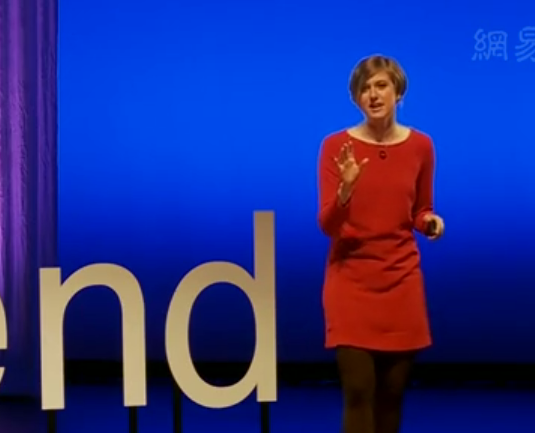This was the first permit of its kind in Oregon.
下面是这类技术在俄勒冈州第一个通过法令的例子。
Brave and open-minded people sat down and felt comfortable saying, "Yeah, that shit makes sense."
勇敢而心胸开阔的人们在圆桌会议上阔谈到:“对,那坨粑粑听起来很有道理。”
"Let's do it." You know?
“我们放手干吧!”你们知道吗?
I keep showing examples where everyone's reusing everything on-site. Why?
我不断的拿出各种例子,其中每个人都在重复使用每一样东西。为什么呢?
Well, when we look at our aging infrastructure -- and it is old -- and we look at the cost of updating it,
当我们目睹了这些老化着的器械,然后我们看到了更新它们的价格,
three-quarters of that cost is just the pipes snaking through our city.
三分之一的钱将花费在更新城市地下管道上。
So as we build anew, as we renovate, it might make more sense to treat and reuse everything on-site.
所以作为我们去整修,去翻新,把它们换成兼备治理和循环的设备也许更合理。

San Francisco realized that it made sense to invest in rebates for every household
旧金山就意识到了这一点:他们在家装当中投资退税活动,
to reuse their wash water and their rainwater to water the backyard,
以此来拯救那些洗浴用水和雨水。人们用这些水去浇灌他们的后院儿,
because the amount of water they would save as a community would be so big.
因为从整体来说这样真的能节约很多水。
But why were all these projects so innovative? The money piece, yeah.
但是为什么说这些项目都很创新呢?从钱的角度来说是一方面。
But more importantly, they felt comfortable with this idea of advanced potty training.
其实更重要的,还是他们想到能够拥有先进如厕技术。
Imagine if we embraced innovation for sanitation the way we have for, say, solar power.
想象如果我们能够运用全新的卫生设施体系,就拿已有的例子途径来说,太阳能。
Think about it -- solar power used to be uncommon and unaffordable.
思考一下它吧,太阳能曾经十分稀少且价格高昂。
Now it's more a part of our web of power than ever before. And it's creating resiliency.
现今它是我们能源链上的重要一员。它也逐渐表现出适应性。
We now have sources of power like the sun that don't vary with our earthly dramas.
我们现在拥有与太阳能类似的能源,而且并不随地球阴晴而改变。












